The Future of Programming

“A machine can do the work of fifty ordinary men but no machine can do the work of an extraordinary man” -Elbert Hubbard.
Some scientists say that time progresses at a constant speed. The intelligent maintain that everything changes near the speed of light. But none of this explains the rising rate of change in the world of technology. This, continues to accelerate a little more each time you look.
Anticipating the future of technology is almost impossible, much less the skills and tools that will be relevant given the impact of innovations to come. But there are insinuations that can be gathered from the technological landscape of today, however, no projection is guaranteed to become a reality.
What if it is almost certain: most of the world will know about programming, but few will know to write “real code”. If you look around your house the programming is included in most of all the electronic devices that we have. To that we add cars that are handled alone, drones that fly higher than the planes and any number of things that can be imagined with the indicative of “smart”: telephones, glasses, watches, video game consoles, etc. Everything else, to a greater or lesser extent, has a series of electronic parts and software that governs its operation. Not everyone will participate in device programming, but everyone will tend to have extensive knowledge of the use of these devices that have come to “facilitate” life or at least transform it, beyond what could be imagined 10 years ago.
Today, concepts like hardware and software are as common as addition or subtraction. Everyone knows what a computer’s operating system or “hardware” is. On the other hand, what is not so common is the process behind many of these common systems. I refer, obviously, to programming, a concept that, according to the RAE, is:
“Develop programs for problem solving using computers.”
This action is the basis behind any electronic system that surrounds us. Do you use a calculator? To a greater or lesser extent, it has required the use of programming. Do you use an iPad? Obviously, all software has been created by programming. And so we can cite thousands of examples. Programming is the basis of technology and therefore, learning to program seems essential to better understand and understand the world today – and the future, obviously.
Despite the above advantages, there is still frank skepticism from certain sectors regarding this process. Whatever attitude is posed to the phenomenon, the truth is that it is impossible to leave aside the technology, thus becoming a continuous replacement of human activities. Programming is first and foremost an emergent of this process.
However, in order to avoid discontent, it should be noted that this whole process will be inappropriate if it does not serve the development of a better society. Where is the technology going ?, no one is very sure of that, but what seems to be an increasingly obvious question is if that path is the one indicated.
